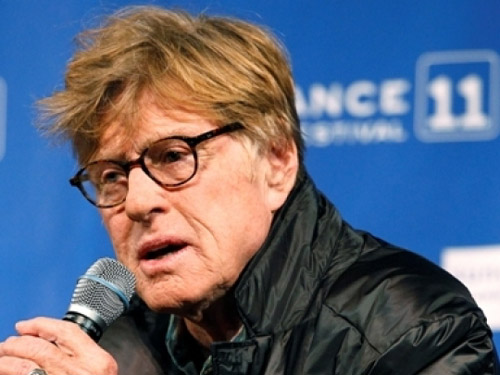Redford Rallies For Docs
Written by: FFT Webmaster | January 17th, 2012
 While film executives jockey for position to bid on the big narrative feature films at this year’s Sundance Film Festival, with some of the films being sneak previewed this week in New York and Los Angeles at very hush hush private screenings, the Sundance Institute founder and “godfather” Robert Redford is making a special push for the documentary films at this year’s event. Perhaps in an election year or with the world in such turmoil, the documentaries that explore a diverse number of domestic and international issues are especially timely. In a revealing interview with National Public Radio’s Neal Conan, Redford revealed his particular commitment to documentary film and the genre’s role in furthering social change.
While film executives jockey for position to bid on the big narrative feature films at this year’s Sundance Film Festival, with some of the films being sneak previewed this week in New York and Los Angeles at very hush hush private screenings, the Sundance Institute founder and “godfather” Robert Redford is making a special push for the documentary films at this year’s event. Perhaps in an election year or with the world in such turmoil, the documentaries that explore a diverse number of domestic and international issues are especially timely. In a revealing interview with National Public Radio’s Neal Conan, Redford revealed his particular commitment to documentary film and the genre’s role in furthering social change.
“I’ve been a big proponent of documentaries going way back into the ’70s. I was very influenced in my own career with the effect of documentaries from such people as Emile de Antonio, D.A. Pennebaker, Richard Leacock, the Maysles brothers and others. I was very impressed with the feeling of ‘you’re there’ — the live energy in the moment that they portrayed. When Sundance started its lab program … it was basically creating an opportunity for independent filmmakers going from development of projects to exhibition of projects. Once the festival survived, and I didn’t know that it would, because it started very humbly and with little to no support, I was able to then see Sundance as a platform where we could start reaching out to increase the value of things that were not being represented, documentaries being the big one. So we were able to then use the festival to start promoting documentaries more and more and more. Then, when we went into the ’90s, globalization created a new opportunity to bring films from other parts of the world to Sundance, including documentaries. So documentaries gained steam all through those early years. The new technology that’s come on at an alarming rate has increased opportunities for documentaries to be made quicker. So they get to the screen quicker, so they bring messages about what America is like today quicker to the screen.”
“One of the beautiful things about America is its diversity. And one of the complicated things about America is its diversity — because it can lead to polarization, like we’re seeing now in politics, which is a pretty depressing thing. You don’t have any kind of compromising capability to put something out there without … having barking dogs in one side, or people defending on the other … we’re kind of stuck. So I think documentaries can kind of carve through that and say, ‘Look, here’s what’s going on out there because everything is so polarized’. I don’t know if this might be wishful thinking on my part, but I’ve always felt that documentaries were beginning to take the place of — or at least add to — investigative journalism. As the media, and particularly the print media, has declined for a number of reasons over the years, you wonder where you’re going to get the truth. With the advance of new technology just bombarding with all kinds of stories about what the truth is … you don’t know what’s what. I think documentaries provide a real service to the public because they give you a better look at where the truth is.”

